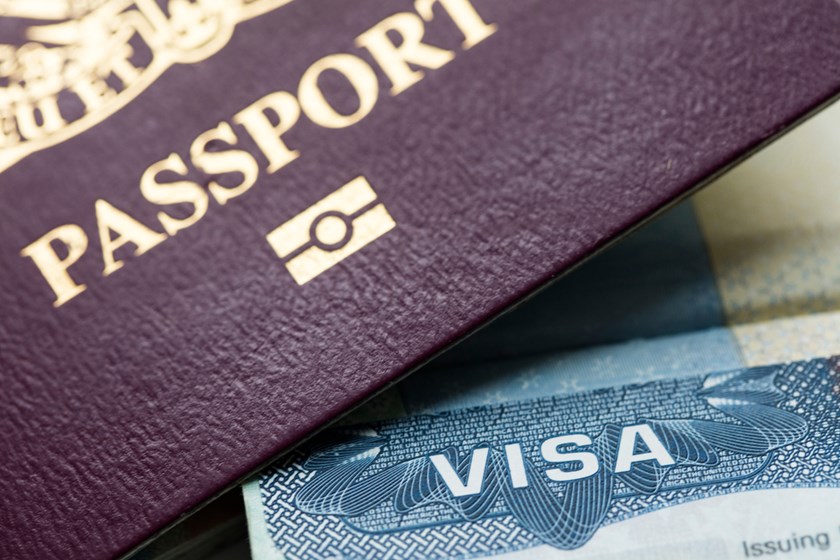Autumn 2023: UK immigration update for the Middle East
Insight

London and the Middle East share strong, historic ties, both culturally and economically. The British Government’s initiatives to renew and strengthen those ties, which included the Foreign Secretary’s visit to the region in July, are testament to the importance of Middle Eastern visitors, residents and investors to the city.
Given these ties, we are often asked to advise on options available for Middle Eastern clients to visit, reside and ultimately settle in the UK. This article is designed as a general update with respect to the immigration routes available to those looking to visit or settle in the UK.
Visiting the UK
Upcoming changes: Electronic Travel Authorisation
Nationals from the Gulf Cooperation Council (GCC) states currently benefit from the Electronic Visa Waiver (EVW) scheme which enables them visit or transit through the UK without having to obtain a visa before travelling, provided they complete an online waiver form.
Given the success of this scheme, the UK will be introducing a new system of pre-travel immigration checks for visitors: the Electronic Travel Authorisation (ETA) scheme. Nationals from the GCC states and Jordan will soon only be required to pay £10 to apply for an ETA, which will allow them to visit the UK multiple times over a two-year period. In contrast, GCC nationals currently pay £30 per visit to the UK under the current EVW scheme and Jordanian nationals pay £100 for a visit visa.
The scheme is set to launch for Qatari nationals on 25 October 2023, and for the rest of the GCC states and Jordan on 1 February 2024 ahead of a worldwide rollout throughout 2024.
We refer you to our earlier article which sets out the ETA scheme in more detail.
Visitor rules
Whether entering the UK under the current EVW or the new ETA scheme, travellers will still need to meet all requirements of the Immigration Rules to be allowed entry to the UK as a visitor.
In general terms, the Border Force official must be satisfied that the individual is a genuine visitor. A "genuine visitor" for these purposes is an individual who:
- will leave the UK at the end of their visit,
- will not live in the UK for extended periods through frequent or successive visits, or make the UK their main home,
- is genuinely seeking entry for a permitted purpose,
- will not undertake any of the listed “prohibited activities”, and
- has sufficient funds to cover all reasonable costs in relation to their visit and their onward journey without working or accessing public funds.
Visitors are not permitted to engage in any activities in the UK unless expressly permitted by the rules. These include visiting friends and family, engaging in general business activities such as attending meetings, volunteering, recreational study, etc.
The Immigration Rules also list those activities which visitors are prohibited from undertaking. These include a general prohibition on working in the UK, including taking employment, doing work for a UK organisation or business, establishing or running a business as a self-employed person in the UK, providing goods or services to UK clients, etc. The rules also prohibit visitors from receiving payment from a UK source, unless otherwise permitted.
Visitors, in most cases, are not permitted to stay in the UK for more than six months (180 days) in any one visit. While there is no restriction on the number of visits an individual may make to the UK, visitors must not make the UK their main home or place of work. Entry should not be refused solely on the basis that a person has spent more than six of the last 12 months in the UK. However, where it is clear from the individual’s travel history that they are seeking to remain in the UK for extended periods or making the UK their main home, entry is likely to be refused.
Visitors are advised to keep this in mind when planning their visits to the UK.
Travelling with domestic staff
It is not uncommon for visitors from the region to want to bring domestic staff with them when travelling to the UK.
Given that visitors are prohibited from working in the UK, domestic staff must first obtain an Overseas Domestic Worker (ODW) visa before accompanying their employers on any visits to the UK. To qualify for the visa, the domestic worker must meet certain requirements, including having been employed as a domestic worker and living with their employer for at least a year before applying. The domestic worker must also be paid at least the UK national minimum wage whilst working for their employer in the UK.
This is a more involved process than the EWV or ETA schemes, so families planning to bring domestic staff to the UK will want to start the application process well in advance of their travels.
We refer you to our earlier article for a more detailed summary of the ODW visa rules.
Options to reside and settle in the UK
The closure of the Investor visa category in February 2022, which had allowed individuals capable making a substantial investment in the UK to live and ultimately settle in the UK, has removed the ability for HNW to secure residence in the UK solely on the basis of their personal wealth.
The Government has stated that it intends to reintroduce an investment-based visa route, however, such a route will place emphasis on the applicant’s track record as an investor in innovative businesses and their plans to actively engage in such activity in the UK. As of writing, the Government has not made any commitments as to when these alternative routes will be introduced. We refer you to our earlier update on the Investor visa route here.
It is important to note that those who already hold visas in the Investor category will still be able to make applications to extend their immigration permission until February 2026 and make applications to settle in this category until February 2028.
Despite these changes, the UK Immigration Rules continue to provide various routes to UK residence. These include the Innovator/Founder, Skilled Worker and UK Expansion Worker routes which variously allow overseas individuals and businesses to establish, join and invest in UK businesses. Whether these routes are viable will depend greatly on the circumstances of the individual and their respective businesses.
This publication is a general summary of the law. It should not replace legal advice tailored to your specific circumstances.
© Farrer & Co LLP, September 2023







